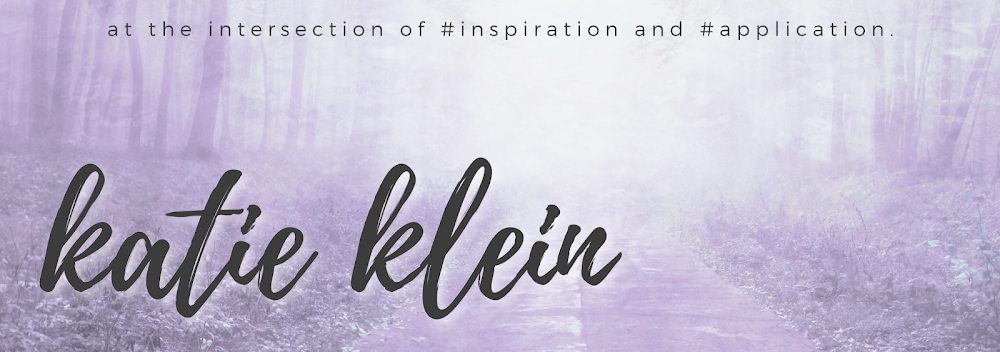In every story, your hero should:
1. Be real.
2. Be inspiring.
3. Have something to hope for, a cause to chase, a reason to push on, and/or someone to save.
4. Have the capacity to change.
5. Face unsettling problems.
6. Have a past or a secret.
7. Have an impact on the world and/or the people around them.
*Fewer things should happen to your main character, and more things should happen because of them.
Be Brilliant!
~Katie~
Thursday, May 31, 2018
Thursday, May 17, 2018
On Time
This wasn't what I was planning on blogging about today, but
it's too important not to share.
From Seth Godin in “The Difference Between Time and Money”:
“You can't save up time. You can't refuse to spend it.
You
can't set it aside.
Either you're spending your time. Or your time is spending
you.”
There are a lot of excuses floating around as to why we’re
not getting our projects completed (or starting them in the first place). The
biggest?
“I don’t have the time.”
But what if you made
the time? What if you cut something from your schedule that wasn’t currently
serving you or adding value to your life? What if you replaced that with genuine,
focused work toward your goal or dream? What would your life look like then?
What if?
Be Brilliant!
~Katie~
Friday, May 11, 2018
Monday, May 7, 2018
The Only Guarantee
I was perusing the Writer’s Café at the Kindleboards site a
couple of weeks ago. Truth is, I hadn’t visited in ages (a few years, even),
and I was interested in seeing what was going on in the “indie world” since
I’ve been so out of touch.
More specifically, I wanted to know what’s working these
days in marketing (and what isn’t) and what’s selling (and what isn’t)—though
I’ve never made a point to write for trends (and don’t recommend
it, though, if you haven’t heard the news, young adult publishers are
tentatively reading vampire fiction again).
Anyway, while I was reading through some of the posts, I was
reminded of how quickly things change. How what sells one day doesn’t
necessarily sell the next. How the advertising approaches that worked last
month may not work this month. How the algorithms that catapulted us to
bestseller status with our last release may not show up for the latest book we
publish.
In essence, not much has changed at all, only now the
marketplace is even more crowded. And yes, there are still those posts on the
Boards from people looking to make a quick dollar and thinking mass publishing
mediocre work is the key to all life’s treasures.
I was mostly reminded, though, that there’s no point in
pursuing this particular publication avenue unless it’s something you’re
passionate about. And really, there are no guarantees with either indie
publishing OR traditional publishing, so, in the end, why not focus on the writing? Because in this industry, that’s the one
thing you CAN control.
I know, it’s a far cry from the writing coaches and
presenters out there promising you can write fifty books in one year and retire
at thirty-five. I don’t know, maybe you
can?
Or maybe it has to be about more than money or awards or
accolades or someone seeing our names on the spines of a book on the shelf at
Barnes and Noble.
Maybe it’s better to
love writing for the sake of writing (creating for creating’s sake), and
letting those other chips fall where they may.
I wrote my first novel fourteen years ago. I went the
traditional route. I wrote a few more books. I went the Indie route. I went the
“time to take a break” route. I’m back with the idea that somehow a mix of the
two (hybrid) is ideal (for my personal goals, anyway).
I’ve watched young adult lit explode onto the scene (because
there was barely a “Teen” section at Barnes and Noble when I first started
writing). I’ve watched the trends cycle up and around and back again. I’ve
watched traditional bestsellers rise and fall and Indie bestsellers rise and
fall. And what I’ve learned from this is that things are never going to work
out the way we want or expect them to. Sometimes we’re pleasantly surprised,
sometimes we’re disappointed, and sometimes
the best thing happens to us even if it doesn’t make sense or look like it at
the time.
After all, Kierkegaard did say:
My point is this:
We can’t control the industry or who chooses to publish us
or how our book is received, but we can do the hard work of writing the best
story we’re capable of at the time, letting it go, and then writing the
next best story we can, knowing that we’re only going to learn more about
ourselves and the writing process—that our characters will grow deeper and our
content richer with every new project we tackle.
If we go into this industry with anything else in mind,
we’re begging for frustration and disappointment, with a few “highs” sprinkled
in, if we’re one of the lucky ones.
So . . . keep your eyes on the creation—the art, the
writing, the story—until it’s time to look up and assess your options. Figure
out what’s best for you and your project, then put your head back down and
start working on the next one.
In this game, the work is the only thing that matters—the creation
is the prize.
It’s the only guarantee we have.
Be Brilliant!
Subscribe to:
Posts (Atom)



